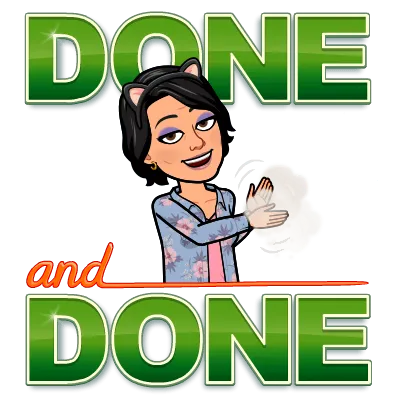Welcome to Tech Tips With The Tech Ninja!

Decluttering Your Digital Life - part 2
“Organization is the key to success. Without it, you never feel like you get on top of anything in your life.”
~ Kat Milner
Introduction:
Following on from last week, let's talk about how you can make yourself more focused and productive through organising your digital life.

1. Declutter Your Inbox
One of the most common complaints I hear from my clients is "My Inbox is out of control!" Believe it or not, getting on top of your inbox will not only save your sanity and time, but will give you a lot of peace of mind.
Strategies for Inbox Decluttering:
Unsubscribe: Look at the bottom of an email - there should be an option to unsubscribe and/or update your subscription. If you want to receive email, just less frequently, update your subscription. If you don't really care, then unsubscribe.
Archive Old Emails: Move non-essential emails to an archive folder to reduce inbox clutter.
Labels and Filters: Set up labels to organize incoming emails automatically.
New Subscriptions: Going forward, there will always be things you want to subscribe to - my suggestion is to create a separate email address for any subscriptions that are not overly important. It will let you know where to find them, and keep the important stuff from getting buried in your inbox.
2. Manage Your Apps
Unused apps consume storage and may slow down your devices.
How to Declutter Apps:
Audit Apps: Review all installed apps and delete those you no longer use.
Update Regularly: Keep the apps you do use updated to ensure optimal performance. The app will usually tell you when there is an update, so updating regularly is a good idea.
Organize: Group related apps into folders on your device for easy access. For example, I put all my social media in one folder, so I don't have to go looking for the different apps.
3. Clear Temporary and Cache Files Regularly
Temporary files and cache can accumulate over time, slowing your device.
How to Clear Cache:
Windows: Use Disk Cleanup and Defrag
Mac: Clear cache via Finder.
Smartphones: Check settings to clear app caches periodically.
Regularly Shut Down and Restart Your Mobile Device
Android: When you power off your device, it will give you the option of a complete shutdown or restart. It's a good idea to do both of these regularly, as it resets different parts of the computer (same for desktop and laptop computers).
Apple: Apple doesn't give the option for restart, so just do a full shutdown periodically.
4. Declutter Digital Notes and Documents
Note-taking apps and document storage can quickly become overwhelming.
Organizing Notes:
Use separate notebooks or tags for topics.
Regularly delete outdated or irrelevant notes.
Consolidate fragmented notes into a single comprehensive document.
5. Monitor Storage Space
Monitoring your storage helps prevent future clutter.
Tools to Use:
Windows: Storage Sense shows usage by category. This is a free function that you can access by going into your system settings.
Mac: Finder provides a breakdown of storage consumption.
Smartphones: Built-in storage analysis tools highlight large files.
6. Set a Regular Decluttering Schedule
Achieving and maintaining digital organization requires consistent effort. I recommend scheduling time for all if these in your calendar - otherwise, it gets away from you and you're right back where you started!
Sample Schedule:
Daily: Clear your desktop and inbox.
Weekly: Review downloads and delete unnecessary files.
Monthly: Backup files and clean storage.
Quarterly: Audit all devices and cloud storage.
7. Practice Minimalism
Finally, embrace minimalism in your digital life. Only keep what adds value or serves a purpose.
Tips for Digital Minimalism:
Limit the number of devices you use.
Adopt a “one in, one out” rule for new apps or files.
Focus on tools that enhance productivity and eliminate distractions.
FAQs about Decluttering Your Digital Life
1. How often should I declutter my devices?
It’s ideal to declutter your devices quarterly, though minor tasks like inbox management you'll want to do weekly.
2. What’s the best cloud storage for personal use?
Google Drive is my personal favourite recommendation, and iCloud is often perfect for Apple users.
3. How can I manage large photo libraries?
Use Google Photos or something similar for automated sorting and duplicate detection.
4. Are there any risks in automating backups?
Automation ensures consistency, but ensure your backup destination is secure and verify backups periodically.
5. How can I prevent clutter from building up again?
Adopt habits like organizing files immediately, deleting unused items regularly, and sticking to a decluttering schedule. Personally, I set aside time weekly for tidying things up.
Next week we'll cover:
What is a Value Ladder - and why do you need one?

